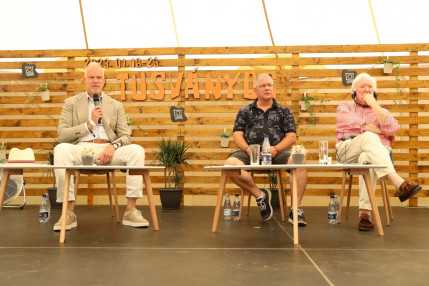Hungary is an important player on NATO’s eastern flank
Text: honvedelem.hu / MTI | Photo: Ministry of Agriculture | 10:00 July 25, 2023According to Defence Minister Kristóf Szalay-Bobrovniczky, NATO’s new defence posture makes Hungary an indispensable player in strengthening the eastern flank, partly because of its geographical position and partly because of the magnitude and speed of the development of its armed forces.

Speaking at a Friday panel discussion of the 32nd Bálványos Summer Free University and Student Camp, the Minister of Defence pointed out that already this year, instead of the originally agreed 2024 deadline, Hungary had met the NATO target of allocating 2% of GDP of the budget to defence.
Hungary also plays an important role with regard to its contribution to collective defence, for example in air policing missions in the Western Balkans, the Baltic countries or Slovenia, and it is making very dynamic progress in strengthening its defence capabilities, added the minister. At the forum discussion entitled “Peace requires strength – Post-NATO Summit”, Kristóf Szalay-Bobrovniczky pointed out that beyond the new defence posture, another important result of the Vilnius NATO Summit was that it has defined the relationship between war-torn Ukraine and NATO.
He noted that although the accession of a country at war would contravene the treaty and would immediately plunge the defence Alliance into war, based on the Ukrainian president’s statements, the press has raised an expectation that in Vilnius, NATO would invite Ukraine to join NATO, and presented it as a real possibility.
The Minister of Defence assessed the situation by saying that NATO is strengthening and will be stronger with the accession of Finland and Sweden, and called the Hungarian ratification of the latter’s membership a “technical matter”, since the government of Hungary supports the enlargement and has submitted the ratification documents to the National Assembly.

As the moderator of the panel discussion, Lajos Kósa (Fidesz), Chairman of the Defence Committee of the National Assembly added that the committee had also delivered a supportive opinion, and the military industry technology built around the Gripen fighter aircraft also forms a common platform with Sweden.
According to the chairman of the committee, in addition to what happened in Vilnius, it is also important what did not happen there: Ukraine did not receive an invitation, that is, it was not exempted from fulfilling the criteria of NATO membership; Sweden had not joined NATO until the Vilnius Summit, and there was almost no discussion of the minimum threshold of 2 per cent GDP for defence spendings that Hungary had already met before the agreed deadline, but such big states like, for example, Germany, have not, and after a warlike “introduction”, the NATO Summit “did not say anything new” about the Alliance’s policy on China.
The Minister of Defence added to the latter point that Hungary would by no means have been interested in NATO’s already declaring China a threat rather than a risk factor. Instead of bloc politics, Hungary’s interest lies in connectivity, as it “wants to engage in commerce with other countries rather than waging war”. According to John O’Sullivan, President of Danube Institute – another invitee to the panel discussion –, even if peace is achieved, we can expect continued tensions between Russia and NATO for a long time to come. Some already call it a new cold war, and it leads to increased defence spendings anyway.
He was of the opinion that today Europe is less afraid of Russian than before the war; at the same time, neutrality is no longer as attractive or fashionable as it once was; not only have Finland and Sweden abandoned it, but people in Austria, Switzerland and Ireland are increasingly giving voice to the need for joining NATO.